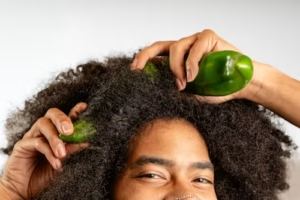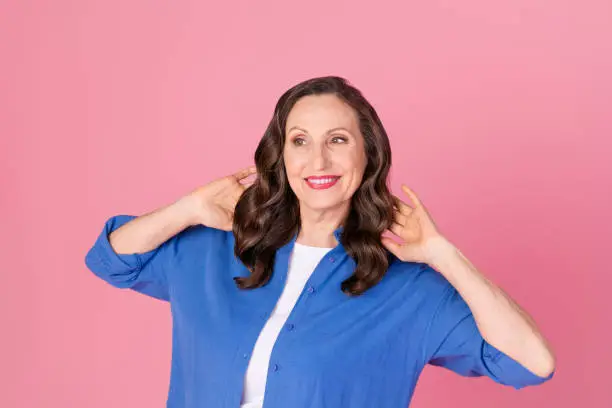Vitamins for hair growth and thickness female
Hair is often a defining feature of our appearance, and for many women, thick, strong, and healthy hair is a source of pride and confidence. Unfortunately, factors like aging, stress, poor diet, hormonal imbalances, and certain health conditions can lead to thinning hair or hair loss. While there is a wide range of treatments and products available, one of the most natural and effective ways to support hair growth and thickness is through the vitamins you consume.
Explore the best vitamins for hair growth and thickness in women, how they work, and how you can incorporate them into your routine. Whether you’re struggling with thinning hair or simply want to maintain your current hair health, these vitamins can help you on your journey to thicker, more vibrant hair.
Why Do Women Experience Hair Thinning?
Hair thinning in women can occur for several reasons, ranging from genetic predisposition to stress or nutritional deficiencies. It is important to note that hair loss or thinning is not just a male problem – many women experience hair shedding, especially as they age or go through hormonal changes like pregnancy, menopause, or polycystic ovary syndrome (PCOS).
Hair loss or thinning can also be caused by external factors, such as:
- Stress: High-stress levels can cause hair to enter the shedding phase of the hair growth cycle.
- Diet: A poor diet lacking in essential nutrients can lead to hair loss.
- Hormonal Imbalances: Changes in hormones due to pregnancy, menopause, or certain medical conditions can lead to hair thinning.
- Medications: Certain medications, such as chemotherapy drugs or those for thyroid disorders, may cause hair loss.
- Genetics: If your family has a history of thinning hair, you may be genetically predisposed to experience it as well.
While these factors may contribute to hair thinning, the good news is that many cases of hair loss or thinning can be reversed or minimized with the proper care and nutrition, especially through vitamins and nutrients that support hair health.
The Best Vitamins for Hair Growth and Thickness in Women
Now, let’s dive into the specific vitamins that can help promote hair growth and thickness for women. These vitamins are essential in stimulating healthy hair follicles, improving scalp health, and boosting hair growth from within.
Vitamin A: The Growth Promoter
Vitamin A is one of the most important vitamins for hair health. It plays a crucial role in cell growth and the production of sebum, a natural oil that keeps your scalp moisturized and healthy. A well-moisturized scalp supports hair follicles and encourages healthy hair growth.
- How it Helps: Vitamin A promotes the growth of new cells, including the hair cells, and keeps the scalp hydrated.
- Food Sources: Sweet potatoes, carrots, spinach, kale, and eggs.
Pro Tip: Don’t overdo it with vitamin A, as excessive amounts can lead to hair loss. Stick to the recommended daily intake to avoid toxicity.
B-Vitamins: The Hair Growth Powerhouse
The B vitamins are a group of eight essential nutrients that work together to support overall health. Among them, biotin (vitamin B7) is particularly known for its hair-strengthening properties. Biotin is often included in hair supplements due to its ability to help hair grow thicker and stronger. Other B vitamins, like B5 (pantothenic acid) and B12, are also important for overall hair health.
- How it Helps: B vitamins help create red blood cells that carry oxygen and nutrients to your scalp and hair follicles, promoting healthy hair growth. Biotin helps prevent hair thinning and breakage.
- Food Sources: Eggs, nuts, seeds, leafy greens, whole grains, and fish.
Pro Tip: Biotin supplements are popular for hair growth, but they are most effective when combined with other B vitamins for a synergistic effect.
Vitamin C: The Antioxidant for Hair Strength
Vitamin C is a powerful antioxidant that helps protect your hair from oxidative stress caused by free radicals in the body. It also supports the production of collagen, an essential protein that helps maintain hair strength and elasticity. Additionally, vitamin C enhances the absorption of iron, which is critical for hair growth.
- How it Helps: Vitamin C strengthens hair strands, prevents split ends, and boosts the production of collagen and keratin.
- Food Sources: Citrus fruits (oranges, lemons), strawberries, bell peppers, broccoli, and tomatoes.
Pro Tip: Vitamin C can also help to reduce hair breakage, so make sure you’re getting enough to keep your hair looking thick and healthy.
Vitamin D: The Hair Follicle Regenerator
Research has shown that a vitamin D deficiency can be linked to hair loss, particularly in conditions like alopecia. Vitamin D helps create new hair follicles, which are essential for hair growth. Low levels of vitamin D are often associated with thinning hair and slower hair regrowth.
- How it Helps: Vitamin D supports the growth of new hair follicles and helps regulate the hair growth cycle.
- Food Sources: Fatty fish (salmon, mackerel), fortified dairy products, egg yolks, and sunlight exposure.
Pro Tip: If you live in a region with limited sunlight, consider taking a vitamin D supplement to ensure your body gets enough of this crucial vitamin for hair health.
Vitamin E: The Scalp Circulator
Vitamin E is another antioxidant that promotes healthy hair by improving blood circulation to the scalp. It helps reduce oxidative stress on the scalp and prevents hair damage caused by free radicals. Vitamin E is also great for improving hair elasticity and preventing split ends. Vitamins for hair growth and thickness female
- How it Helps: Vitamin E boosts circulation to the scalp, ensuring that hair follicles receive the nutrients they need for healthy hair growth.
- Food Sources: Almonds, sunflower seeds, spinach, avocado, and sweet potatoes.
Pro Tip: Vitamin E oil can also be massaged directly into the scalp to help improve circulation and nourish hair follicles.
Folic Acid (Vitamin B9): The Follicle Booster
Folic acid, also known as folate in its natural form, is crucial for healthy cell division. Since hair growth involves the constant division of cells, folic acid is a vital nutrient for hair follicles. It also supports the health of red blood cells, which transport oxygen and nutrients to the scalp. Vitamins for hair growth and thickness female
- How it Helps: Folic acid promotes healthy cell division, encouraging the growth of hair follicles and strengthening hair strands.
- Food Sources: Leafy greens, beans, peas, lentils, and citrus fruits.
Pro Tip: If you are pregnant or planning to become pregnant, folic acid is especially important for overall health, but it also supports healthy hair growth.
Other Nutrients to Support Hair Health

While vitamins are key, other nutrients also contribute to hair growth and thickness:
- Iron: Low iron levels are often associated with hair loss, particularly in women. Iron helps transport oxygen to hair follicles, encouraging growth and reducing shedding. You can find iron in red meat, spinach, lentils, and beans.
- Zinc: Zinc helps with hair tissue growth and repair. It also helps keep the oil glands around hair follicles working properly. Zinc-rich foods include oysters, beef, pumpkin seeds, and lentils.
- Omega-3 Fatty Acids: These healthy fats nourish the hair, improve scalp health, and reduce inflammation that could contribute to hair loss. You can find omega-3s in fatty fish like salmon, walnuts, flaxseeds, and chia seeds.
How to Get These Vitamins in Your Diet
The best way to support hair growth and thickness is through a balanced diet that includes a variety of nutrient-rich foods. Aim to eat a mix of:
- Protein-rich foods(like eggs, chicken, fish, and legumes) for strong hair
- Healthy fats(like avocados, nuts, and fatty fish) for scalp health
- Leafy greens and vegetables(like spinach, kale, and bell peppers) for a vitamin and mineral boost
- Whole grains(like oats, quinoa, and brown rice) provide energy and support hair health
- Citrus fruits and other vitamin C-rich foods support collagen production
If you feel that your diet may be lacking in specific nutrients, you can also consider supplements. However, it’s always a good idea to consult with a healthcare provider before starting any new supplements to ensure they are right for your specific needs.
If you’re looking to enhance your hair growth and achieve thicker, fuller hair, vitamins are a crucial part of the equation. By ensuring you’re getting the right mix of vitamins like vitamin A, B vitamins, vitamin C, D, E, and folic acid, you can nourish your hair from the inside out and support healthy growth. Along with a balanced diet, the right vitamins can help you unlock the full potential of your hair and restore your confidence.
Can I take too many vitamins for hair growth?
Yes, it is possible to take too many vitamins for hair growth, and in some cases, it can be harmful. While vitamins are essential for healthy hair, excessive amounts of certain vitamins can lead to toxicity or other adverse effects. Here are some important points to keep in mind: Vitamins for hair growth and thickness in female
Vitamin A
Vitamin A is important for cell growth, including hair cells, and helps keep your scalp healthy. However, taking too much vitamin A can be toxic and may lead to hair loss rather than promoting growth. Excessive vitamin A can disrupt the hair growth cycle, causing hair follicles to enter the shedding phase prematurely.
- Recommended Daily Intake (RDI):700-900 mcg (micrograms) for adults.
- Toxicity Symptoms: Nausea, dizziness, headache, and hair loss.
- Safe Limit: Stick to the recommended daily intake, and avoid taking large doses of vitamin A supplements unless directed by a healthcare provider.
Vitamin D
Vitamin D supports hair follicle health, and deficiency can contribute to hair loss, especially in conditions like alopecia. However, excessive amounts of vitamin D can lead to hypercalcemia (high calcium levels in the blood), which can cause nausea, kidney problems, and other health issues.
- RDI:600-800 IU for most adults.
- Toxicity Symptoms: Weakness, nausea, kidney stones, and hair thinning.
- Safe Limit:4,000 IU per day is considered the upper limit for vitamin D, unless under medical supervision.
Biotin (Vitamin B7)
Biotin is one of the most popular vitamins for hair growth. While it’s rare to experience biotin toxicity, taking very high doses can lead to potential side effects, such as acne or skin rashes. Excessive biotin may also interfere with certain lab test results, leading to inaccurate readings for thyroid and other hormone levels.
- RDI:30 mcg per day for adults.
- Toxicity Symptoms: High doses can cause acne, and rashes, or interfere with lab tests.
- Safe Limit:While biotin is generally safe, sticking to the recommended dose is best to avoid unwanted side effects.
Vitamin E
Vitamin E is an antioxidant that promotes scalp health and can help reduce oxidative stress, which may contribute to hair loss. However, like other fat-soluble vitamins, excessive vitamin E can build up in the body and cause problems such as hair loss, gastrointestinal issues, and even bleeding. Vitamins for hair growth and thickness female
- RDI:15 mg per day.
- Toxicity Symptoms: Nausea, diarrhea, and hair thinning.
- Safe Limit: The upper safe limit is 1,000 mg per day, but most people don’t need to reach this amount for hair health.
Folic Acid (Vitamin B9)
Folic acid is essential for healthy cell division, and a deficiency can contribute to hair thinning. However, high doses of folic acid (more than 1,000 mcg) can mask vitamin B12 deficiency symptoms, leading to nerve damage if left unaddressed.
- RDI:400 mcg per day.
- Toxicity Symptoms: High doses can mask B12 deficiency, leading to nerve damage.
- Safe Limit:1,000 mcg per day is the upper limit for folic acid supplements.
General Tips to Avoid Overdoing It:

- Stick to the Recommended Dosages: Always follow the recommended daily intake of vitamins and minerals as listed on the supplement packaging or as advised by your healthcare provider.
- Consult a Doctor Before Starting Supplements: Before adding high-dose supplements to your routine, consult with a healthcare provider, especially if you have any underlying health conditions or are taking other medications.
- Look for Balanced Supplements: Many hair growth supplements are formulated to provide a safe, balanced mix of vitamins and minerals. Avoid taking multiple supplements that contain the same vitamins unless advised by your doctor.
- Get Nutrients from Food: Whenever possible, aim to get vitamins and minerals from a well-balanced diet, which is safer and easier for your body to process compared to high-dose supplements.
Conclusion:
While vitamins play a crucial role in hair health, taking too many can have unintended consequences, including hair loss, toxicity, and other health issues. It’s best to stick to the recommended daily values and consult a healthcare provider before taking high-dose supplements. By doing so, you can support your hair growth and thickness naturally without the risks associated with vitamin overdose.

